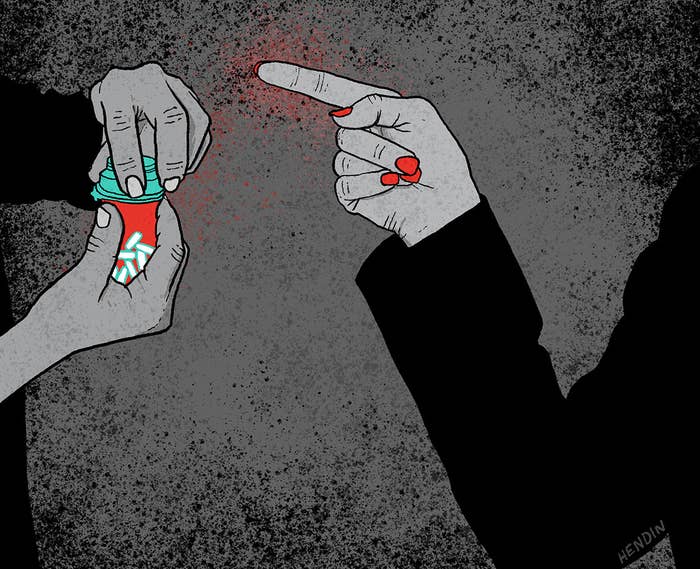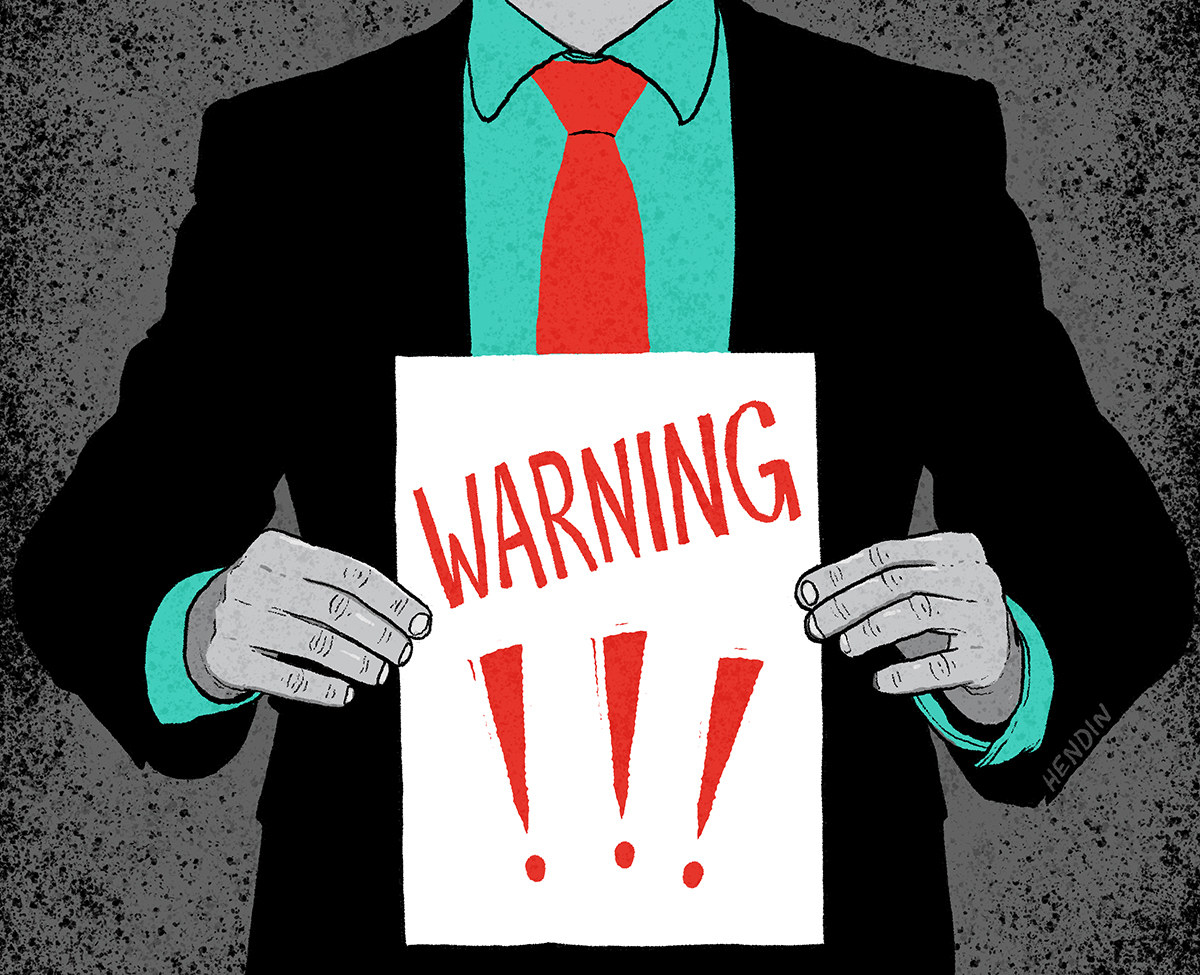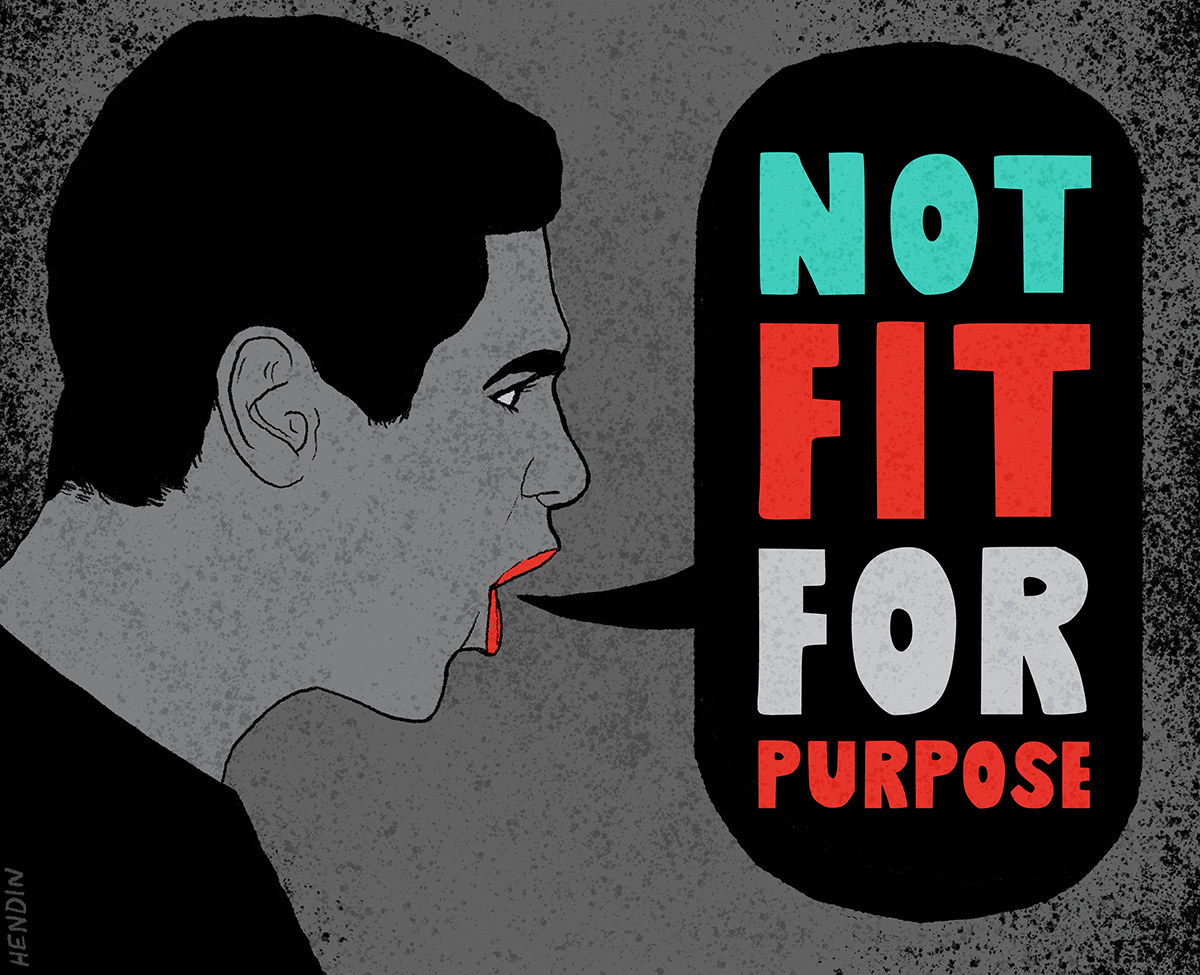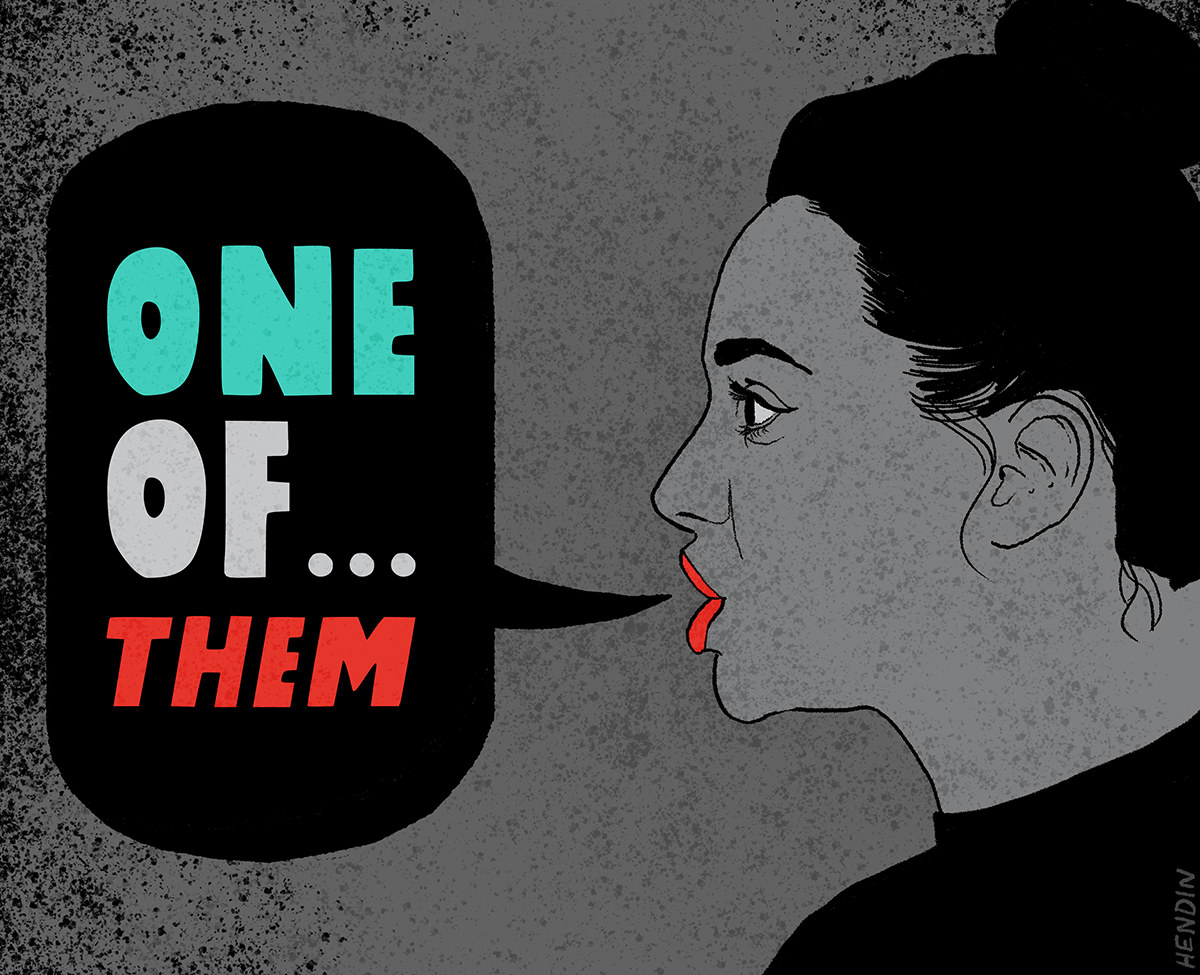
We asked members of the BuzzFeed Community to tell us about their experiences of disability discrimination they had faced in the workplace. Here are some of their stories.
1. When I was 18 I was recovering from severe depression and anorexia, and took a voluntary job in a local branch of a well-known charity shop. One day, for "health and safety reasons" we were told we all had to write down any medications we were on. Later, my manager came up to me and demanded to know why I was on antidepressants at "only 18", because "at your age you should be making your own serotonin!". I didn't really know what to say to that, but after a few more instances of barbed remarks about the fact antidepressants are bad for people (something I definitely knew not to be true in my case), I left.
– Submitted by Nina
2. I'm from the UK and have muscular dystrophy. While at college I applied to work at a well-known music store working on the tills. During the interview they mentioned stacking shelves and I said that I could do that but asked if a trolley was available as I couldn't carry heavy things or crouch down to fill low shelves. They said that was fine as the job was mainly till-based anyway. I went home having thought the interview went well, but got a call saying I was perfect for the job but I would be a liability due to my disability, so they couldn't offer it to me. I was shocked. If only I knew about discrimination laws back then (15 years ago).
– Submitted by Sara
3. I have multiple sclerosis, which has left me partially sighted with no peripheral vision. As soon as a potential employer found out about my condition, they said that they knew someone else with MS and didn't want to jeopardise my health by offering me the job, as they were worried about my ability to see a computer (which was not a problem at all). MS affects people differently and I wouldn't have applied if I couldn't have done the job. So I set my own company up instead.
– Submitted by Alison on Facebook

4. I have endometriosis and have either lost jobs due to taking too much time off sick, or been given verbal or written warnings for absences. At one workplace, an endometrial cyst (a blood-filled growth on my ovary) burst in a training session. I fainted but wasn't allowed to leave to go to the hospital; I had to stay until the end of the day. When I did go to hospital I was immediately admitted, and when I returned to work I was given a written warning for taking time off.
– Submitted by Christabel on Facebook
5. I have depression, severe anxiety, dyslexia, and dyspraxia. I have been accused of being lazy, not paying attention, and not being a team player. I had my probation extended in my last job because I "made mistakes when proofreading", which was actually a result of my dyslexia, something I had disclosed in advance when applying and discussed with management.
I was also told I was being difficult and "making something out of nothing" when I tried to explain the difficulties I have because of my depression and anxiety. I have been denied opportunities to advance my career on a number of occasions, which I believe has been due to my disabilities and health conditions, and I have been made redundant two times. After the last redundancy I had a breakdown and tried to commit suicide. Since then (four years ago) I've been unable to work.
– Submitted by London_Lass
6. I worked on the phones for a major insurance company in the UK. Six months in, they pulled me into a meeting to discuss either firing me or extending my probation period due to high absences caused by my spontaneously dislocating kneecaps, made worse by changes to our working pattern that meant I had to go out for lunch every single day, and travel for longer. I left because I didn't have the energy to fight them. Also, at the same place, I had two separate team leaders who used to grab my very expensive walking stick, adjust the height, and pretend to play "golf" with it. And at least twice, when putting it back, they'd whack my bad knee, meaning I had to go home.
– Submitted by jchinquee
7. I was discriminated against by a major British bank because I suffered a breakdown as a consequence of the work I was doing for them. Once I'd got myself together I set up my own business, doing the same thing I was doing for the bank before I was fired. I'm now earning roughly six times what they paid me, I employ four people, and have done things I never thought I ever would again. Discrimination is always bad, but (unusually perhaps) in my case I've been able to come out of the other side. Anyone suffering discrimination should be told that it is possible for things to get better.
– Submitted by John via email

8. I'm a lawyer based in the UK. Once my firm realised my health condition was permanent and I couldn't work overtime any more, a very serious but false "complaint from a client" came in and was used as an excuse to push me out. On top of that, I'd had five years of being told by my employer that it would be impossible for me to find another job as I was not "fit for purpose", so I'd have to take a huge pay cut. So I had four months off work struggling to pay my mortgage, facing crippling depression, with my condition spiralling. It took the suicide attempt of my best friend to jump start me into sending off an application, which led to me getting a job (with the same salary) within a week with an amazing firm and a supervisor who can't do enough for me. Physically I'm the same and I always will be as I'm incurable, but mentally I'm so much better now.
– Anonymous
9. I used to work for a well-known UK charity that represents people with disabilities. I have a neurological disease that requires me to go into hospital every month for a chemotherapy-based treatment. I'm immune-suppressed and have to have regular tests for side effects because it could kill me. At first it was fine but then I got a new, more senior manager who would make me work extra hours so I could go to my appointments, or take the time out of my annual leave.
I have since left this charity and work for a large company, and their HR department have told me I should have been allowed to attend my appointments without any penalty. I was never offered an Access To Work financial grant either; I have this at my new job and it makes a big difference. It's ironic given they are a charity specifically for people with disabilities, which campaigns for human rights.
– Anonymous
10. I was forced to resign from a job after having disciplinary action taken against me for sickness. They knew about my health condition when I applied for the job, yet they didn't make any adjustments. I was "allowed" to be ill three times in a year, the same as everyone else. The same employer also gave me a laptop so that I could work from home when I was too ill to make it into work, but later took it back, saying, "It's unfair on the staff without a disability for you to be able to work from home when you're ill."
– Anonymous
11. I'm 24, live in the UK, and suffer from anxiety, depression, a panic disorder, Ehlers-Danlos syndrome, and an autoimmune disease. When I was 21 I was working as a receptionist for a salon. My boss would bully me, claiming I looked a mess, saying she could tell I hadn't showered, and would mock me about my appearance and my tattoos. She would also move my shifts around without telling me so I'd have no way to get home. At one point she even called my parents in to mock me about my health and appearance! Luckily my parents understand my illness. When I finally handed my notice in after six months, she accused me of stealing money. She really affected my state of mind and self-confidence.
– Anonymous

12. I worked for a very well-known mental health organisation in the UK. After working for them for two years, I was then off sick for three months with depression. The difference in how I was treated before I took sick leave and when I returned was horrifying. I was diagnosed with bipolar disorder and had to start therapy and attend regular psychiatric appointments. After I told my boss, things got worse at work. I was made to move desks, I was micro-managed. If I took one minute longer than I should have in another department dropping something off, my supervisor would call the department to see where I was.
I had gone from a well-loved colleague to "one of them". One of the most heartbreaking days at work was when I had my one-to-one with my boss and supervisor. I felt backed into a corner and ganged up on. They listed all of what they saw as my negative contributions to my work: I talk too much, I have a short attention span, I do too many things at once, I'm up and down, etc. I couldn't believe how I was being treated. I stared at them both in disgust and just calmly said, "What you've described there is part of the criteria for bipolar."
Things carried on getting worse at work. I had crisis intervention, was almost hospitalised, and started receiving threatening letters from work saying that they were going to stop my pay and terminate my contract if I didn't go in for a meeting. With the support of my family and doctors I eventually attended their meeting, and lost my job. I remember my union rep saying very clearly, "You'd be surprised that an organisation that promotes mental health is actually the most discriminatory to staff with mental health needs." He was right.
– Anonymous
13. I'm autistic. While working as a journalist for a magazine, I requested clear, unambiguous instructions on how to do my job as a disability accommodation. My editor refused. During a performance review, both he and the company owner criticised me for my performance. I explained the problems were due to the lack of accommodation, and the company owner said, "We don't accept that your autism should be a problem." I was sacked a couple of months later.
– Anonymous
14. I have type 1 diabetes, and used to work in a café. I wasn't allowed proper breaks, and any time spent not working was unpaid. If a customer came in you had to stop your break and serve them. When I was hypoglycaemic I was told I had to carry on serving as long as there were customers, even with shaky hands, and blurry vision caused by not being able to eat all day. It wasn't worth the damage it was doing to my health, so I left.
– Submitted by Laura
15. I suffer from a neurological condition that causes me to have stroke-like symptoms randomly and for random amounts of time. They're called "hemiplegic migraines" but the moment someone hears ''migraine" they say things like, "Oh, I get headaches too! I just pop a couple of paracetamols and I'm good to go." Er, no. Are you paralysed? Do you lose speech? Does your face go droopy? A previous manager put me on a performance review because of my sickness absences, then denied it outright saying I was paranoid. She also made me take a month off sick, then penalised me for it.
– Submitted by Kate on Facebook
Please note, submissions have been edited for length and/or clarity.
If you think you are experiencing disability discrimination, you can contact Citizens Advice which offers free advice to people in the UK. In cases of disability discrimination it suggests writing down what is happening so you have a record of it and thinking about the outcome you want, be it an apology, financial compensation, or a change at work.

